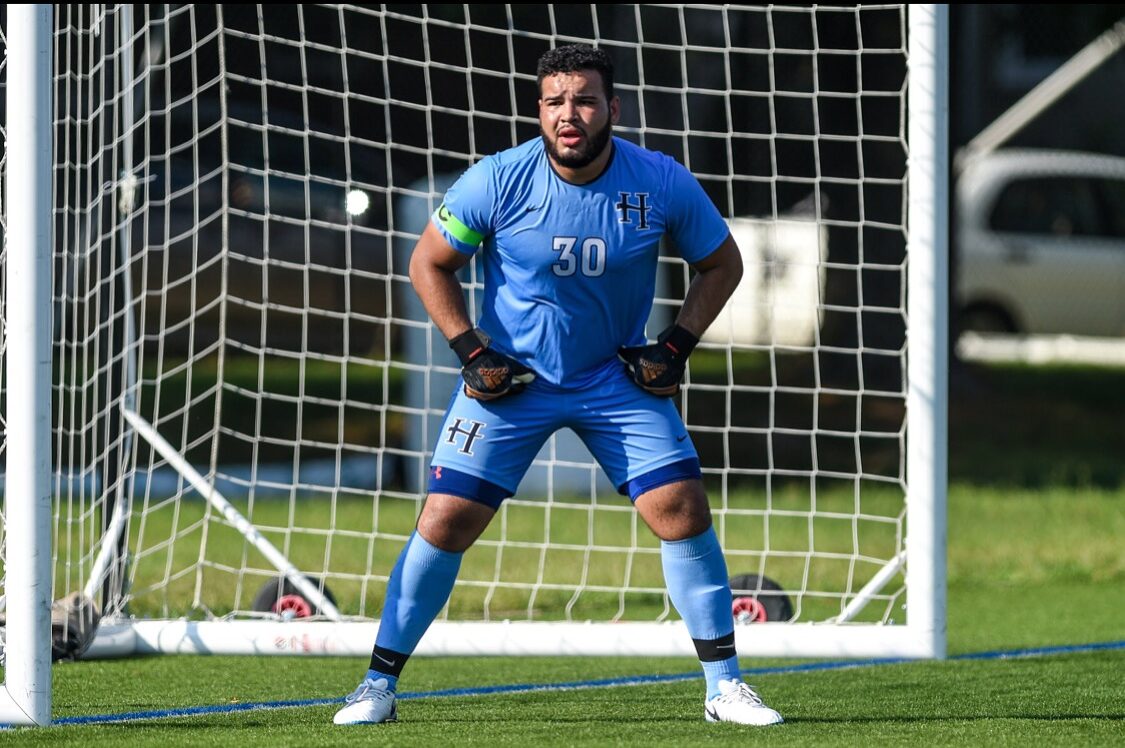By Hannah Armstrong//
Rising COVID-19 cases in the United States have led to the postponement of all athletic competition within the Middle Atlantic Conference (MAC), affecting Hood College and other schools in the Maryland and Pennsylvania areas.
Although many colleges canceled athletics entirely this fall season, Hood College Athletic Director Susan Kolb worked with the athletic department to ensure that student athletes could return to the field as soon as possible.
In order to facilitate this, a phase-in process was created in order to allow athletes to practice while still maintaining social distancing guidelines. Fall athletes had to attend an orientation to inform them about new COVID-19 protocols, as well as to remind them of previous expectations.
The process consists of three phases, each with different levels of distancing measures in place.
“The first phase is not what you would consider practice,” Kolb said. “It is individualistic—it is training, going over technique, and it is fitness.” No shared equipment is allowed in phase one, including balls or cones, which are essential pieces of equipment in fall sports such as soccer and field hockey.
After 14 days, phase two begins. Equipment can be shared, which allows teams to begin passing and shooting on goal. “It can be tactical, rather than just technical,” Kolb said.
Following another 14 days with no confirmed cases of COVID-19, athletes can begin moving into phase three. “We are allowed to have contact and inter-squad scrimmages, but masks must be worn,” Kolb said. This is the final phase, and teams will remain in this phase until their season ends.
If any cases were to occur within the athletic department, whether it be staff or athletes, the three-phase process will essentially be paused until the athletic facilities have been sanitized and proper quarantining has been put into place.
Athletes entered phase two this week.
“Although this season is not exactly how we would have pictured it, I am grateful for the chance to participate in Hood athletics this year,” said Robyn Reus, a junior volleyball player. “Not many college athletes can say they have the same opportunity as us, so it is important to keep following the protocols the athletic department and school have set up for us.”
Meghan Moir, a junior soccer player also explained how she felt about this season: “I think they planned the season out very well, and my coach was transparent with us regarding everything.”
This phase in plan also offered senior athletes a final chance to be with their team, even if in unconventional circumstances. “I was thrilled to be getting a senior season in a global pandemic, regardless of what it looked like,” said Rachel Bennett, a senior on the field hockey team. “I was looking forward to stepping onto the field a final time.”
Due to the lack of competition this fall, the Hood athletic department is planning a possible abbreviated season for fall athletes in the spring. “We are planning on creating a conference schedule and holding a conference championship in the spring, if at all possible,” Kolb said.
The athletic department is spending its time working on improving student athletes’ experience off the field as well.
“We are working on adding programming for student athletes on various topics such as diversity and inclusion, leadership training, and Jennie Bowker and I are working on women’s symposium for our female athletes who want to continue in athletics after college,” Kolb said. “We have many topics for programs we want to implement in one form or another to give our athletes a well-rounded experience.”



Be the first to comment